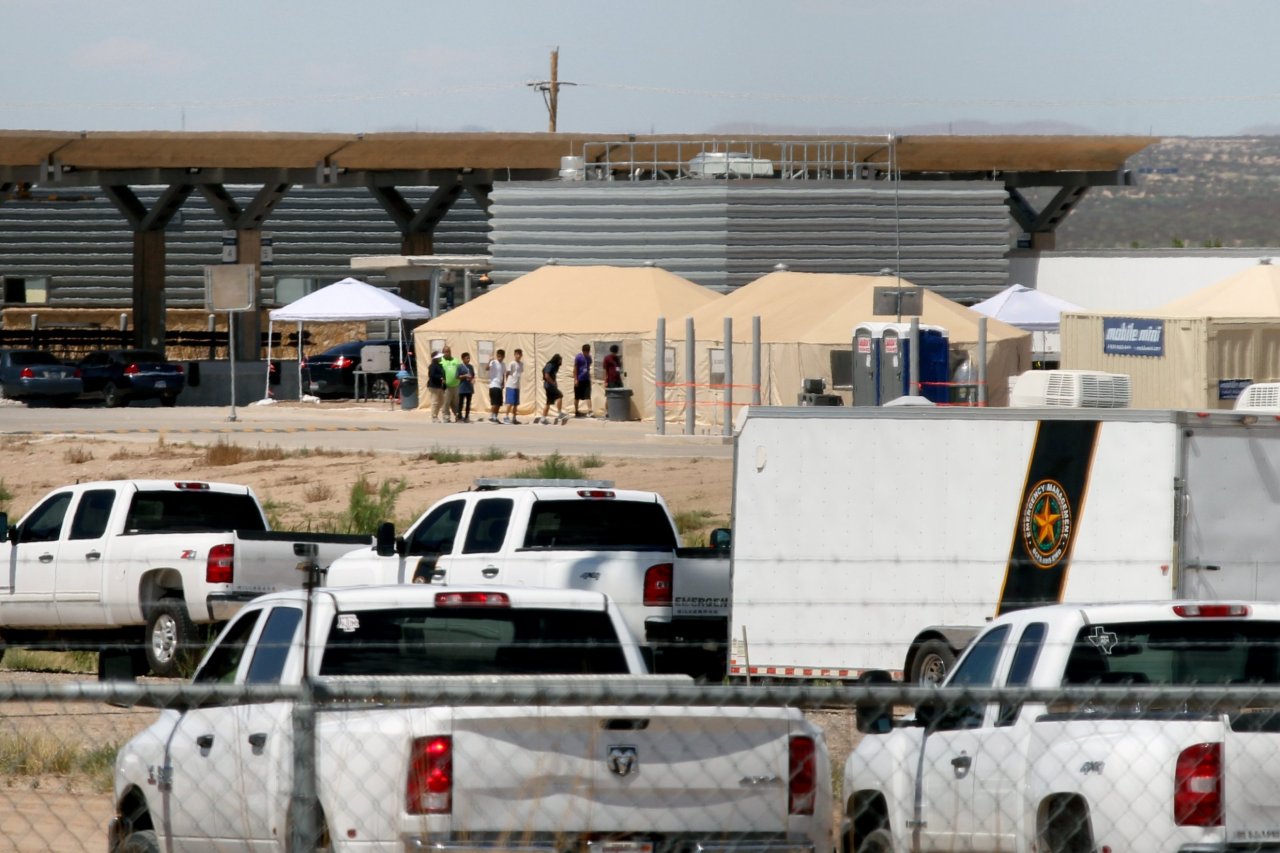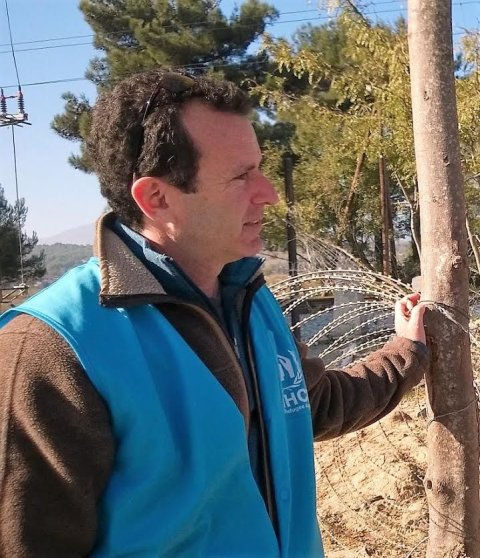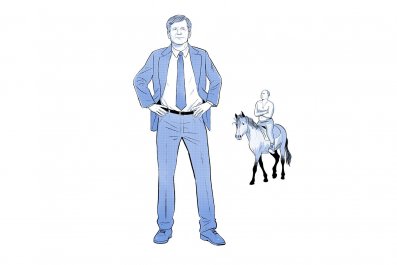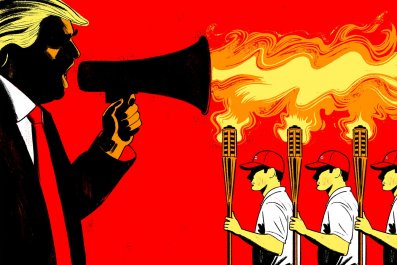
The current federal policy of separating children from parents crossing illegally into the United States at the southern border has drawn ire from many angles. Chief among the concerns are the consequences that this separation may have on the mental health of the children as well as their parents.
Dr. Paul Spiegel is the director of the Center for Humanitarian Health at Johns Hopkins Bloomberg School of Public Health. Prior to joining Hopkins, Spiegel spent more than 14 years at the UN High Commissioner for Refugees (UNHCR), starting the HIV program and serving as chief of public health. He has also worked with the Emergency Refugee Branch of the Centers for Disease Control and Prevention (CDC) as well as Doctors Without Borders. In these various capacities, Spiegel has provided aid in numerous humanitarian crises, including the mass arrival of Syrian refugees in Greece in 2016.
Newsweek spoke with Spiegel about what children held in detention facilities without their parents could have in store.
How long have you known about what is happening at the border?
As far as we know, the current activities began in April or slightly earlier. But we were following the fleeing of people from violence and persecution, particularly in the Northern Triangle [made up of El Salvador, Guatemala and Honduras] when I was at the UNHCR. What's been happening in these countries is not new. What is new is the change in policy concerning family separation. Only recently has it become clear that this is a policy that the U.S. government is going to enforce, with vigor.
What do we know about how this kind of separation impacts mental health?
There are a tremendous amount of data on this, stemming primarily from the Adverse Childhood Experiences, or ACE, study, conducted by the CDC from 1995 to 1998. This study found that traumatic events such as divorce, separation from parents, being put into foster homes or sexual or physical abuse have very negative effects on children. These effects are cumulative; more than one trauma—and particularly more than four—have increasing consequences. At the time, the results were surprising.
When children are forcibly separated from their parents without being given any information and without being able to communicate with their parents, that's a traumatic event. And it's unlikely that this is their first traumatic event, given the violence in many of the countries they're coming from. So this separation is adding to the trauma they have already experienced.
Prolonged trauma in children can affect the architecture of their brain because it's not yet fully formed. The toxic stress puts the brain into continuous flight-or-fight mode. Our flight or fight response is very important for dealing with immediate danger. But usually we stay in that mode for a very short period of time. You don't want to be in that state 24 hours a day for weeks on end.
How does this prolonged state change the brain architecture?
The pathways and mechanisms are complex, involving changes to the responsiveness of neurotransmitters coming out from the brain. The simplest way to understand it is to think about how we respond when we are under a great deal of stress—and then imagine that continuing day after day, never turning off. Studies have shown that exposure to chronic stress in children can affect the brain.
What are the visible consequences of these changes?
For many children, the trauma will exacerbate learning difficulties. Some children may be more prone to substance abuse. Increased depression and post-traumatic stress disorder are also issues. If a child has a genetic predisposition to a mental health condition, an event like this could help bring that out.
The ACE study followed children for many years and found an increase in diabetes, cardiovascular disease and even earlier death among children who experienced repeated trauma versus those who did not.
Does the duration of the separation matter in terms of the severity of the consequences?
The number of traumas, the intensity and the length are all important.
So reuniting children with their parents quickly could help reduce the consequences later?
Potentially. It depends how the children are being treated, which will also have an effect. The sooner you can stop the separation the better, but the harm has already been done.

What are the mental health consequences on the parents?
Adults are more robust because their brains are done forming. But parents may experience depression and difficulty functioning. The trauma could also exacerbate any existing illnesses, particularly mental health. There are some mitigating factors. A strong family or other support is different from being completely isolated.
Part of what is unique to this situation, compared to other separations, is that there is no extended family present. For children with an incarcerated parent, that separation is bad for any child, but usually other family members are around. In this situation, a parent has fled a country with their child out of concern for safety and they are now separated in a country where they have no community or immediate support.
Is there any way to help prevent these long-term consequences from taking hold of these children?
By far the best answer is to not do it in the first place. This trauma is avoidable. But if children are removed from their parents, it's important that they are in a comforting atmosphere, given sufficient information and able to speak with their parent or guardian.
We have now heard reports that social workers at the detention facilities are not allowed to touch the younger children. Sometimes concern that touching could lead to abuse is important. But you also want people who are trained to have the ability to comfort these children. Not doing that contributes to the stress and trauma.
When is separation from a parent appropriate?
Article 9 of the Convention on the Rights of the Child (CRC) states that children should never be separated from their parents except if it is in the best interest of the child. If you aren't sure that the adult with a child is really their parent or guardian, if you're not sure whether the child is being abused or if there is a concern about trafficking, then separation is appropriate. Otherwise, the child should not be separated.
The United States is the only country that has not signed the CRC. But that doesn't stop the country from having to follow it, because it's common law.
Can any federal health authorities intervene?
The American Academy of Pediatrics has been quite outspoken in saying that this separation is akin to child abuse. The Department of Health and Human Services will have to handle the ramifications of this separation. The Office of Refugee Resettlement, part of HHS, already has about 10,000 unaccompanied minors needing to find homes or foster care. Now there are an additional 2,000 children who never should have unaccompanied minors but now are.
Could you place this situation in a global context?
As far as I know, the U.S. is the only country separating children from families seeking asylum. When refugees were arriving on the beaches of Greece, families were always kept together. It's almost sacrosanct to do so. In the world of humanitarian work, any time you have an unaccompanied minor, the first thing you do is contact tracing so that the family can be whole again. What we are seeing is the opposite to those values, which is what makes this so disturbing.
This situation is not equivalent to what is happening in Liberia, where children are forced to become soldiers, put on drugs and made to kill and commit other horrific acts. But what the U.S. is doing is unnecessary. Why would you potentially hurt a child by taking them away from their family? There are worse things happening to children in different parts of the world, but this is being voluntarily done by a federal administration on its own accord, and there's no law that says they have to do this.
Are there other potential consequences?
Some studies have shown that repeating traumas to children also cost society money. When these children return to their home countries or receive asylum, they will need support for everything fro learning to healthcare. The actions are wrong because who would want to make things worse for any child to begin with. But there are financial implications that we should be aware of as well.













